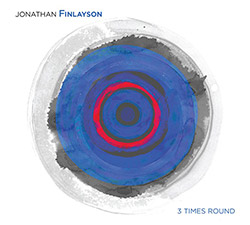
With a frontline of Jonathan Finlays on on trumpet, Steve Lehmanon alto saxophone and Brian Settles on tenor saxophone and flute, plus three members from Finlayson's band Sicilian Defense--Matt Mitchell on piano, John Hebert on bass and Craig Weinrib on drums--"3 Times" features intricate counterpoint, interlocking rhythmic complexity, gorgeous harmonies and strong melodies.
Out of Stock
Quantity in Basket: None
Log In to use our Wish List
Shipping Weight: 3.00 units
Sample The Album:
Jonathan Finlayson-trumpet
Steve Lehman-alto saxophone
Brian Settles-tenor saxophone, flute
Matt Mitchell-piano
John Hebert-bass
Craig Weinrib-drums
Click an artist name above to see in-stock items for that artist.
UPC: 808713007725
Label: Pi Recordings
Catalog ID: Pi 77
Squidco Product Code: 26504
Format: CD
Condition: New
Released: 2018
Country: USA
Packaging: Digipack
Recorded at Brooklyn Recording, in Brooklyn, New York, on March 5th and 6th, 2018, by Andy Taub.
"Trumpeter Jonathan Finlayson's 3 Times Round is his first release since the widely-lauded Moving Still, which was named one of the top albums of 2016 by the New York Times and the best release of the year by PopMatters, who called Finlayson "among the most exciting and puckish composers in the music today." Relentlessly innovative and thoroughly uncompromising, Finlayson is the first-call for musicians seeking a trumpeter who is able to negotiate the most complex musical material yet bring his own sense of individuality and verve. These includes a stunning list of cutting-edge artist such as Henry Threadgill, Muhal Richard Abrams, Steve Lehman, Mary Halvorson and, of course, Steve Coleman, with whom Finlayson has played with for the last 18 years. Just in 2018, Finlayson appears on two other important Pi releases: Henry Threadgill's 14 or 15 Kestra: Agg - Dirt... And More Dirt and Steve Coleman's Live at the Village Vanguard, Vol. I (The Embedded Sets), further evidence of his standing at the leading edge of jazz.
Finlayson's two prior releases as a leader featured his band Sicilian Defense, which highlighted the leader as the only horn. 3 Times Round, however, features a frontline of Finlayson on trumpet, Steve Lehman on alto saxophone and Brian Settles on tenor saxophone and flute, plus three holdovers from Sicilian Defense: Matt Mitchell on piano, John Hebert on bass and Craig Weinrib on drums. It's a remarkable aggregation of highly individual artists.
Mitchell, who has released three acclaimed albums on Pi, is one of the most highly sought-after pianists in jazz, playing with the likes of Tim Berne, Dave Douglas, John Hollenbeck, and Steve Coleman. Hebert is also a bandleader who is a member of Fred Hersch's trio and various Mary Halvorson aggregations in addition to playing for years with the legend Andrew Hill. Weinrib is best known as a member of Henry Threadgill's groups Ensemble Double up and 14 or 15 Kestra: Agg in addition to playing with David Virelles and Ravi Coltrane.
Perhaps the most notable quality of this sextet is the contrast between the saxophones of Lehman and Settles. Lehman, who has collaborated with Finlayson since 2004, is a veteran of six releases on Pi and is widely admired for his compositional audacity. He also brings an immediately recognizable sound as a player, with its piercing attack, exacting tonality, and distinctive cadence. On the other hand, Settles, who is perhaps best-known as a stalwart of the fertile Washington DC jazz scene, stands out with his refreshing juxtaposition of a modernist vocabulary with a burry sound filled with texture and grain, one that reminds of players from a long-bygone past.
Lehman is particularly effusive in his praise: "Brian has developed and refined a very unique take on a somewhat overlooked school of tenor saxophone language that includes everyone from Don Byas to Archie Shepp, and a lot of the tenor players who came to prominence in the 1970s like Carlos Garnett, David Murray and others. It's about sound and gesture and vocalization and connecting on a visceral level. And yet every single one of his solos navigates the intricate rhythms and harmonies of Jonathan's music with real grace and aplomb. It's rare to hear someone extended that tenor language in 2018 in an era when Mark Turner and Michael Brecker are still the main role models for most, and rarer still to hear it in the context of highly demanding compositions like these." Finlayson's own playing straddles the divide. He prefers a purity of sound with deft timbral variety. His solos emphasize patient melodic invention over flashy moves. Together, the three horns intertwine with fluidity and grace.
The compositions on 3 Times Roundexhibit an incredible sense of balance in the ensemble writing and the way the various voices complement one another. Featuring intricate counterpoint, and interlocking rhythmic complexity, it's also filled with gorgeous harmonies and melodies, which drew enthusiastic praise from Finlayson's long-time bandmate Steve Coleman: "It's very impressionisticwith really creative harmonic writing, of which Jonathan has an almost-pianistic command. I can hear the breadth in the music, which reflects Jonathan's interests in so many different things."
Many of the pieces are also great blowing vehicles, leaving plenty of room for the musicians to stretch out and put their improvisational inventions on full display. But Lehman says that they aren't just a string of solos: "You can't kind of dial up your usual bag of tricks because the music isn't really based on chord changes or chord symbol mentality. It's much more about voice-leading and the way that one chord connects to the next via the movement of very specific pitches.
The notion of counterpoint and voice-leading in the written material carries over to all the structures for improvisation, too." Brian Settles describes it as "an expansive perennial garden-landscape, one that is thoughtfully designed with a variety of colors, textures and shapes, with a subtle underlying order." It's another masterful work from one of the most creative and uncompromising musicians on the jazz scene today."-Pi Recordings
Artist Biographies
• Show Bio for Jonathan Finlayson "Jonathan Finlayson has been recognized by the New York Times as "...an incisive and often surprising trumpeter," who is "...fascinated with composition." Born in 1982 in Berkeley, CA, Finlayson began playing the trumpet at the age of ten in the Oakland public school system. He came under the tutelage of Bay Area legend Robert Porter, a veteran trumpeter from the bebop era who took Finlayson under his wing; he was often seen accompanying Porter on his gigs about town and sitting in on the popular Sunday nights jam session at the Bird Cage. He subsequently attended the New School for Jazz and Contemporary Music where he studied with Eddie Henderson, Jimmy Owens and Cecil Bridgewater. Finlayson is a disciple of the saxophonist/composer/conceptualist Steve Coleman, having joined his band Five Elements in 2000 at the age of 18. He is widely admired for his ability to tackle cutting-edge musical concepts with aplomb. Finlayson has performed and recorded in groups led by Steve Lehman, Mary Halvorson, Craig Taborn, Henry Threadgill and played alongside notables such as Von Freeman, Jason Moran, Dafnis Prieto and Vijay Iyer." ^ Hide Bio for Jonathan Finlayson • Show Bio for Steve Lehman "Described as "a state-of-the-art musical thinker" and a "dazzling saxophonist," by The New York Times, Steve Lehman (b. New York City, 1978) is a composer, performer, educator, and scholar who works across a broad spectrum of experimental musical idioms. Lehman's pieces for large orchestra and chamber ensembles have been performed by the International Contemporary Ensemble (ICE), So Percussion, Kammerensemble Neue Musik Berlin, the JACK Quartet, the PRISM Saxophone Quartet, and the Talea Ensemble. His recent recording, Mise en Abîme (Pi, 2014) was called the #1 Jazz Album of the year by NPR Music and The Los Angeles Times. And his previous recording, Travail, Transformation & Flow (Pi, 2009), was chosen as the #1 Jazz Album of the year by The New York Times. The recipient of a 2015 Guggenheim Fellowship and a 2014 Doris Duke Artist Award, Lehman is an alto saxophonist who has performed and recorded nationally and internationally with his own ensembles and with those led by Anthony Braxton, Vijay Iyer, Jason Moran, Meshell Ndegeocello, and High Priest of Anti-Pop Consortium, among many others. His recent electro-acoustic music has focused on the development of computer-driven models for improvisation, based in the Max/MSP programming environment. Lehman's work has been favorably reviewed in Artforum, Downbeat Magazine, The New York Times, Newsweek, and The Wire, and on National Public Radio, the BBC, and SWR. As a Fulbright scholar in France during the 2002-2003 academic year, Lehman began researching the reception of African-American experimental composers working in France during the 1970s. His article in the journal Critical Studies in Improvisation, "I Love You with an Asterisk: African-American Experimental Composers and the French Jazz Press, 1970-1980," is based on his Fulbright research. More recently, Lehman has published writings and presented lectures on a wide range of topics, including jazz pedagogy, rhythm cognition, and European notions of American experimentalism. His current scholarship, including a forthcoming contribution to the Oxford Handbook of Spectral Music, examines the overlapping histories of spectral composition and jazz improvisation. Lehman received his B.A. (2000) and M.A. in Composition (2002) from Wesleyan University where he studied under Anthony Braxton, Jay Hoggard, and Alvin Lucier, while concurrently working with Jackie McLean at the Hartt School of Music. He received his doctorate with distinction in Music Composition from Columbia University (2012), where his principal teachers included Tristan Murail and George Lewis. Lehman has taught undergraduate courses at Wesleyan University, the Conservatoire National Supérieur de Musique de Paris, New School University, and Columbia University, and has presented lectures at Amherst College, UC Berkeley, The Berklee School of Music, The Banff Centre, The Royal Academy of Music in London, and IRCAM in Paris, where he was a 2011 research fellow. Beginning in September 2016, Lehman will join the music faculty at The California Institute of the Arts." ^ Hide Bio for Steve Lehman • Show Bio for Brian Settles "Saxophonist and composer Brian Settles has established himself as a rising force with a long-term artistic vision. Settles blends the outwardly engaging with the deeply personal, reconciling his intimate command of the jazz lineage with a commitment to his own experimental voice. He performs regularly with some of modern jazz's leading groups, including Tomas Fujiwara and The Hook Up, Michael Formanek's Cheating Heart and Big Band Kolossus, and bands led by Jonathan Finlayson. Settles has also accompanied the likes of Gil Scott-Heron, Jason Moran and Marc Cary. Settles' two albums as a leader feature entirely original music, highlighting his buoyant, pithy compositions: Secret Handshake (Engine, 2011) featured the five-piece Central Union, and was named the best jazz record of the year by both the Washington City Paper and CapitalBop.com. Settles followed up with Folk (Engine, 2013), a trio album acclaimed by Something Else Reviews and the NYC Jazz Record. Born and raised in Washington, DC, Settles picked up the saxophone in the eighth grade and was immediately enamored. The next year he enrolled in the prestigious Duke Ellington School of the Arts, where he spent the next four years studying with renowned saxophonist and educator Davey Yarborough. During his time at Ellington, Settles began a ten-year mentorship with tenor saxophone legend Stanley Turrentine. This exposure to the life of a veteran performer and recording artist solidified his plans of becoming a jazz musician. Settles went on to attend the New School for Jazz & Contemporary Music, where he was mentored by bass legend Reggie Workman and saxophonist Arnie Lawrence, the school's founder. After graduating from the New School, Settles joined forces with bassist, Tom Abbs and drummer, Chad Taylor. Under Abbs' leadership, the trio (Frequency Response) performed throughout New York City and in 2003 (with the addition of cellist, Okkyung Lee) recorded the album Conscription (CIMP - 288). In 2008 Settles earned a master's degree in music from Howard University, where he studied with the great saxophonist Charlie Young. While at Howard, Settles joined drummer Tomas Fujiwara in The Hook Up. The quintet has since released three well-received albums, and has been celebrated by the New York Times as "a gathering of sharp young improvisers ... insightful [and] invigorating." And Settles has earned a growing chorus of acclaim on his own: In 2015 he was listed as a rising star on tenor saxophone, in Downbeat magazine's critics poll, and he earned an artist fellowship from the DC Commission on the Arts and Humanities. All the while he's worked with young musicians as a teacher and mentor at the Washington Jazz Arts Institute, where he has served since 2002. To anyone who's heard it, Settles' warbling, viscous tone is immediately recognizable, and his solos are never too quick with their emotional payoff. Inky and warm, his playing can seem to hover weightlessly while simultaneously boring down. Critic Michael J. West calls Settles "absolutely heart-stopping on the bandstand ... known for his versatility, expressiveness, and dizzying imagination" (Washington City Paper)." ^ Hide Bio for Brian Settles • Show Bio for Matt Mitchell "Matt Mitchell is a pianist and composer interested in the intersections of various strains of acoustic, electric, composed, and improvised new music. He currently composes for and leads several ensembles featuring many of the current foremost musicians and improvisers, including Tim Berne, Kim Cass, Caroline Davis, Kate Gentile, Ben Gerstein, Sylvaine Hélary, Jon Irabagon, Travis Laplante, Ava Mendoza, Miles Okazaki, Ches Smith, Chris Speed, Tyshawn Sorey, Chris Tordini, Anna Webber, Dan Weiss, and Katie Young. He is an anchor member of several significant creative music ensembles which integrate composed and improvised music, including Tim Berne's Snakeoil, the Dave Douglas Quintet, John Hollenbeck's Large Ensemble, Rudresh Mahanthappa's Bird Calls, Jonathan Finlayson's Sicilian Defense, Dan Weiss's Large Ensemble, Steve Coleman's Natal Eclipse, the Darius Jones Quartet, Kate Gentile's Mannequins, Mario Pavone's Blue Dialect Trio, Anna Webber's Simple Trio, Ches Smith's We All Break, Michael Attias' Spun Tree, Ohad Talmor's Grand Ensemble, and Quinsin Nachoff's Flux. He is also among the core performers of John Zorn's Bagatelles. Musicians with whom he performs and has performed include Jon Irabagon, Chris Lightcap's Bigmouth, John Hollenbeck's Claudia Quintet + 1, JD Allen, Rudresh Mahanthappa and Bunky Green's Apex, Rez Abbasi's Invocation, Lee Konitz, Kenny Wheeler, Ralph Alessi's Baida Quartet, Dave King's Indelicate duo, Amir ElSaffar, Marc Ducret, David Torn, Vernon Reid, Clarence Penn and Penn Station, Linda Oh, Rudy Royston, Allison Miller, Donny McCaslin, Brad Shepik, and Darcy James Argue's Secret Society. He has taught extensively with the Brooklyn-based School for Improvisational Music, as well as at the New School, NYU, and the Siena Jazz Workshop. He is also a 2015 receipient of a Doris Duke Impact Award and a 2012 recipient of a Pew Fellowship from the Pew Center for Arts and Heritage." ^ Hide Bio for Matt Mitchell • Show Bio for John Hebert "John Hebert was born in New Orleans, LA. He attended Loyola University from '90 to '92 where he was awarded with a complete scholarship. In 1992, John moved to the New York State area, completing his formal studies at William Paterson University in New Jersey; he graduated with a B.M. in Jazz Performance in 1994. After graduating, John moved to New York City where he quickly became a highly in demand bassist, both for live performances and studio sessions." ^ Hide Bio for John Hebert • Show Bio for Craig Weinrib "Craig Weinrib (1988) lives and works in New York. He graduated from Columbia University in 2010 with a degree in English Literature. Since then he has collaborated with some of the most progressive artists in the world, including Henry Threadgill, Ravi Coltrane, and David Virelles. He now works with Henry Threadgill's Double-Up, Roman Filiú's Quarteria, the Ben van Gelder Quartet/Quintet, and the Sam Harris Trio; he also appears with Jonathan Finlayson and Sicilian Defence, the Dayna Stephens Quintet, and the Matt Brewer Quintet, among others. As a recording and performing artist, Weinrib has appeared with Henry Threadgill, Ravi Coltrane, Mark Turner, Jason Moran, Greg Osby, Ambrose Akinmusire, David Virelles, Roman Filiu, Aaron Parks, Dayna Stephens, Curtis Fowlkes, Lage Lund, Ben Street, Sam Harris, Ben van Gelder, Rafiq Bhatia, Jonathan Finlayson, Matt Brewer, Larry Grenadier, and Joe Wilder, among many others." ^ Hide Bio for Craig Weinrib
7/9/2025
Have a better biography or biography source? Please Contact Us so that we can update this biography.
7/9/2025
Have a better biography or biography source? Please Contact Us so that we can update this biography.
7/9/2025
Have a better biography or biography source? Please Contact Us so that we can update this biography.
7/9/2025
Have a better biography or biography source? Please Contact Us so that we can update this biography.
7/9/2025
Have a better biography or biography source? Please Contact Us so that we can update this biography.
7/9/2025
Have a better biography or biography source? Please Contact Us so that we can update this biography.
Track Listing:
1. Feints 7:02
2. Grass 7:40
3. A Stone, A Pond, A Thought 9:02
4. The Moon Is New 14:07
5. Refined Strut 4:40
6. Rope From The Sky 3:16
7. Tap-Tap 7:22
Improvised Music
Jazz
Free Improvisation
NY Downtown & Metropolitan Jazz/Improv
Sextet Recordings
Melodic and Lyrical Jazz
Staff Picks & Recommended Items
Search for other titles on the label:
Pi Recordings.


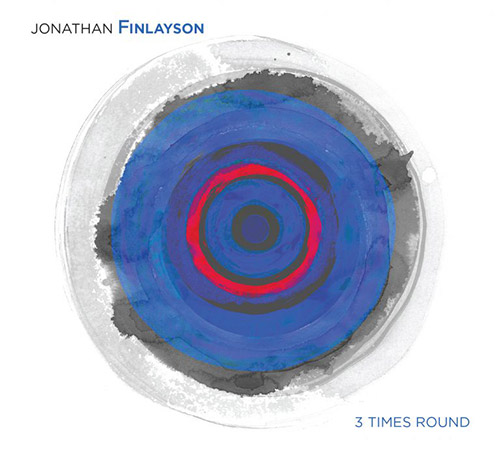

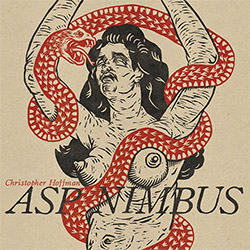


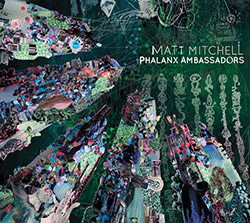
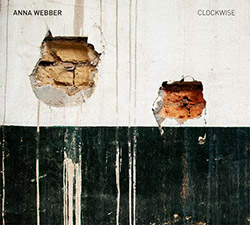



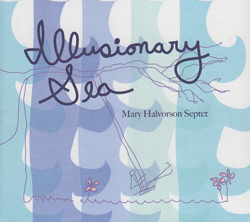



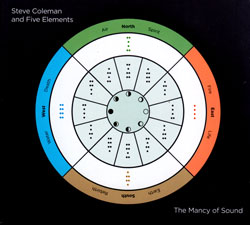
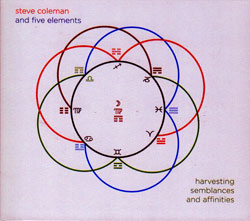
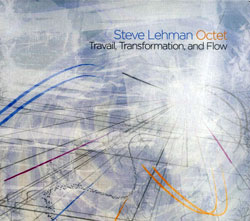
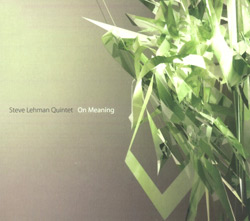




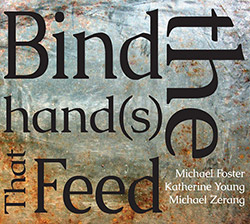
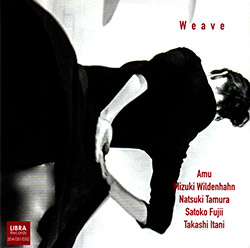






![BlueRing Improvisers: Materia [2 CDs]](https://www.teuthida.com/productImages/misc4/36513.jpg)








![Wheelhouse (Rempis / Adasiewicz / McBride): House And Home [VINYL]](https://www.teuthida.com/productImages/misc4/36462.jpg)
![+DOG+: The Light Of Our Lives [2 CDs]](https://www.teuthida.com/productImages/misc4/36009.jpg)


![Parker, Evan / Jean-Marc Foussat: Insolence [VINYL]](https://www.teuthida.com/productImages/misc4/36398.jpg)










![Deupree, Jerome / Sylvie Courvoisier / Lester St. Louis / Joe Morris: Canyon [2 CDs]](https://www.teuthida.com/productImages/misc4/36404.jpg)



![Eventless Plot | Haarvol: The Subliminal Paths [CASSETTE + DOWNLOAD]](https://www.teuthida.com/productImages/misc4/36232.jpg)










![Eventless Plot | Francesco Covarino: Methexis [CASSETTE + DOWNLOAD]](https://www.teuthida.com/productImages/misc4/36231.jpg)



![Das B (Mazen Kerbaj / Mike Majkowski / Magda Mayas / Tony Buck): Love [VINYL]](https://www.teuthida.com/productImages/misc4/36329.jpg)


![Eternities: Rides Again [CASSETTE]](https://www.teuthida.com/productImages/misc4/36247.jpg)
![Lopez, Francisco: Untitled (2021-2022) [2 CDs]](https://www.teuthida.com/productImages/misc4/36438.jpg)






![Money : Money 2 [2 CDs]](https://www.teuthida.com/productImages/misc4/35894.jpg)




![Klinga, Erik: Elusive Shimmer [VINYL]](https://www.teuthida.com/productImages/misc4/36258.jpg)
![CHANGES TO blind (Phil Zampino): Volume 9 - I Wave on a Fine Vile Mist [CD + DOWNLOAD]](https://www.teuthida.com/productImages/misc4/36061.jpg)

![Wallmart / Rubbish: Asset Protection [split CD]](https://www.teuthida.com/productImages/misc4/35900.jpg)


![+Dog+: The Family Music Book Vol. 5 [2 CDs]](https://www.teuthida.com/productImages/misc4/35897.jpg)
![Kuvveti, Deli : Kuslar Soyledi [CASSETTE w/ DOWNLOAD]](https://www.teuthida.com/productImages/misc4/36107.jpg)

![Brown, Dan / Dan Reynolds: Live At The Grange Hall [unauthorized][CASSETTE]](https://www.teuthida.com/productImages/misc4/36245.jpg)








![Palestine, Charlemagne / Seppe Gebruers: Beyondddddd The Notessssss [VINYL]](https://www.teuthida.com/productImages/misc4/36206.jpg)
![Palestine, Charlemagne / Seppe Gebruers: Beyondddddd The Notessssss [NEON GREEN VINYL]](https://www.teuthida.com/productImages/misc4/36207.jpg)

![Laubrock, Ingrid: Purposing The Air [2 CDs]](https://www.teuthida.com/productImages/misc4/35639.jpg)

![Yoko, Ono / The Great Learning Orchestra: Selected Recordings From Grapefruit [2 CDs]](https://www.teuthida.com/productImages/misc4/35841.jpg)









![Zorn, John / JACK Quartet: The Complete String Quartets [2 CDs]](https://www.teuthida.com/productImages/misc4/35609.jpg)

![Lonsdale, Eden: Dawnings [2 CDs]](https://www.teuthida.com/productImages/misc4/35480.jpg)



![Sorry For Laughing (G. Whitlow / M. Bates / Dave-Id / E. Ka-Spel): Rain Flowers [2 CDS]](https://www.teuthida.com/productImages/misc4/35985.jpg)

![Rolando, Tommaso / Andy Moor : Biscotti [CASSETTE w/ DOWNLOADS]](https://www.teuthida.com/productImages/misc4/36106.jpg)


![Electric Bird Noise / Derek Roddy: 8-10-22 [CD EP]](https://www.teuthida.com/productImages/misc4/35970.jpg)








![Elephant9 : Mythical River [VINYL]](https://www.teuthida.com/productImages/misc4/34624.jpg)



![Elephant9 with Terje Rypdal: Catching Fire [VINYL 2 LPs]](https://www.teuthida.com/productImages/misc4/35355.jpg)
![Deerlady (Obomsawin, Mali / Magdalena Abrego): Greatest Hits [VINYL]](https://www.teuthida.com/productImages/misc4/34876.jpg)







![Surplus 1980: Illusion of Consistency [CD]](https://www.teuthida.com/productImages/misc4/35069.jpg)
![Staiano, Moe: Away Towards the Light [VINYL + DOWNLOAD]](https://www.teuthida.com/productImages/misc4/35037.jpg)
![Coley, Byron: Dating Tips for Touring Bands [VINYL]](https://www.teuthida.com/productImages/misc4/17906.jpg)

![Lost Kisses: My Life is Sad & Funny [DVD]](https://www.teuthida.com/productImages/misc4/lostKissesDVD.jpg)